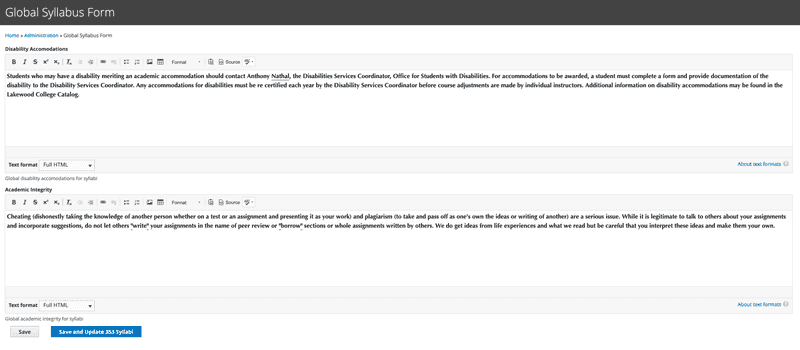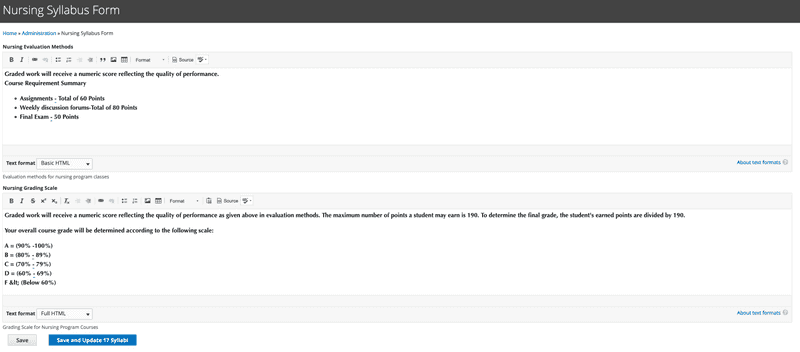Managing Global or Program-Level Content for Syllabi
February 10, 2021
We find it helpful to divide syllabus content into three types: global content that should appear on all syllabi at your institution, program-level content for all syllabi within a certain area, and class-level content. Organizing syllabi this way provides a great starting place, although we recognize that your institution may have slightly different needs. For this reason, we're always happy to do free customizations.
Managing Global Syllabus Content
Certain content should appear on all syllabi at your institution, whether it be grading policies, disability accommodations, academic integrity information, or any information that needs to be consistent across your institution. If you're managing syllabi manually, locating and changing this information is a huge undertaking.
With Clean Catalog's syllabus management software, we provide an easy interface for updating this type of content efficiently. Users with the appropriate level of permissions can update content using the syllabi editor, and either save it individually or save and update all affected syllabi.
 Global Syllabus Management Administration Form
Global Syllabus Management Administration Form
Managing Program-Level Syllabus Content
Similarly, some information should be consistent across all syllabi within a program. It might be grading scales, evaluation criteria, clinical requirements, etc. This information may change from term to term, so we provide an easy form for program administrators with appropriate permissions to edit information, either saving it for later publication or immediately updating all affected syllabi.
 Program-Level Syllabus Management Administration Form
Program-Level Syllabus Management Administration Form
Managing Course-Level Syllabus Content
Naturally, most of your syllabus changes will happen at the course level. Information specific to the course, such as the lesson schedule, required texts, and instructor information, will be edited for each individual syllabus. Clean Catalog provides tools to ensure that syllabi are consistent and go through the proper approval processes, which is especially important when instructors or program coordinators are making changes autonomously.
